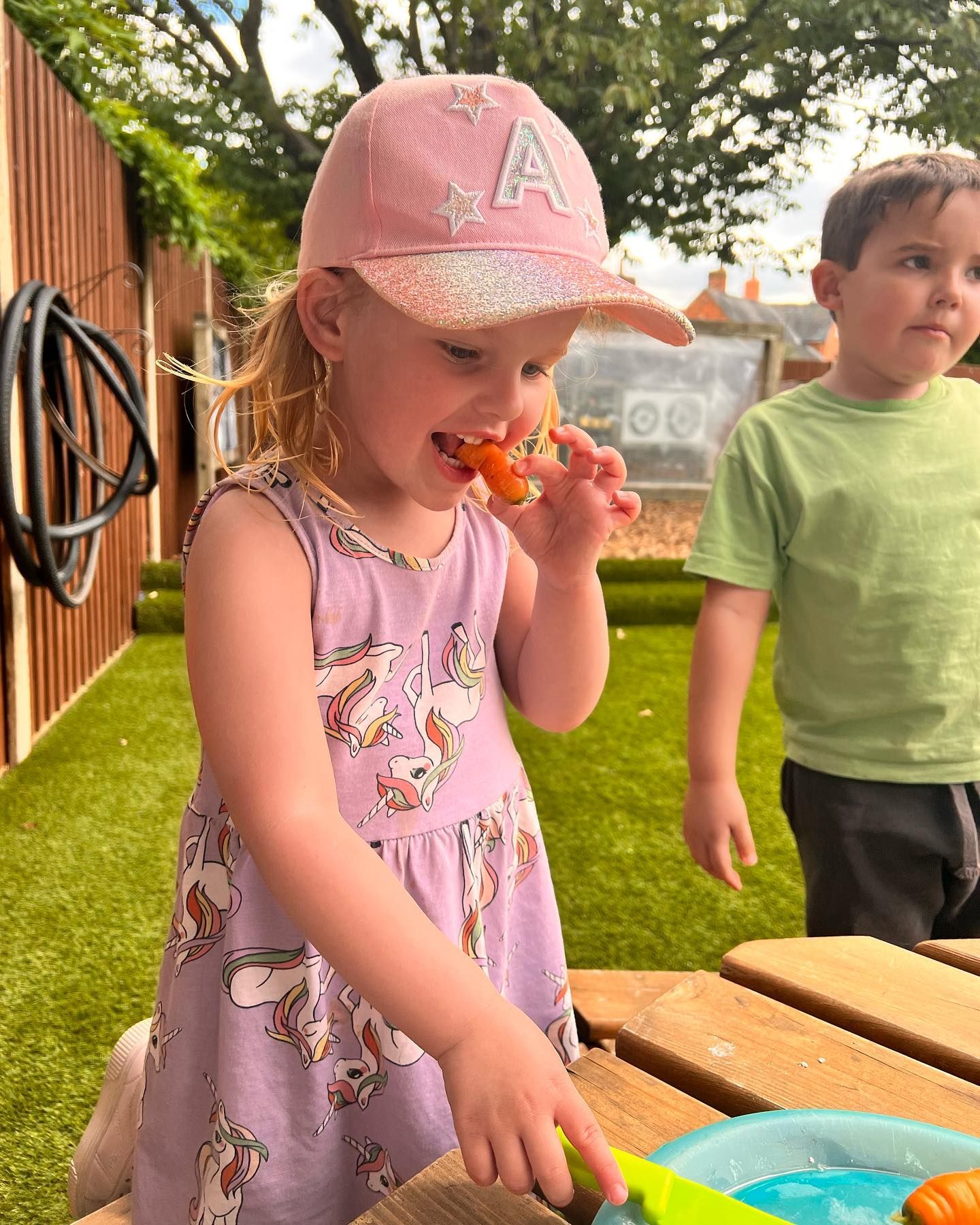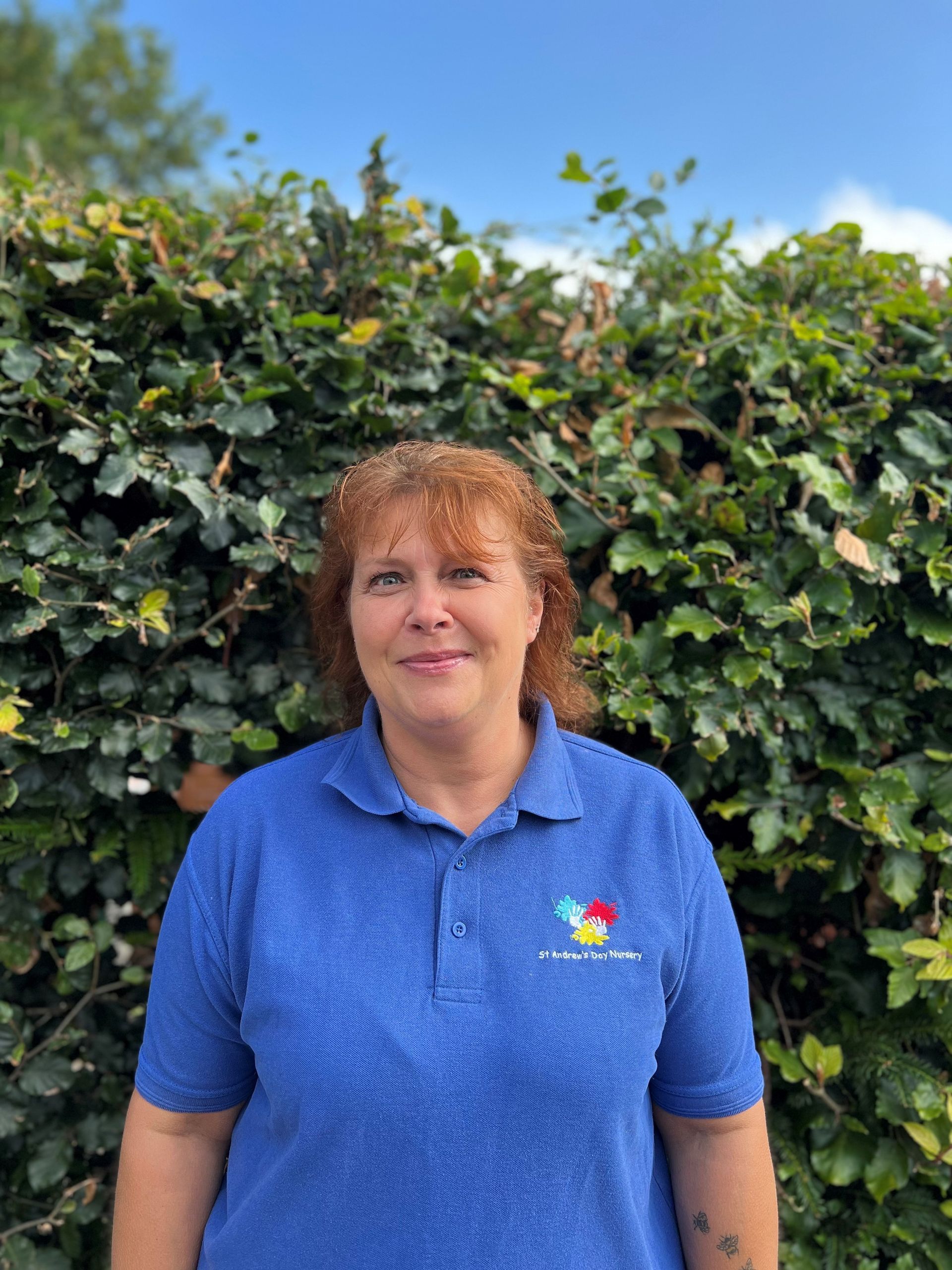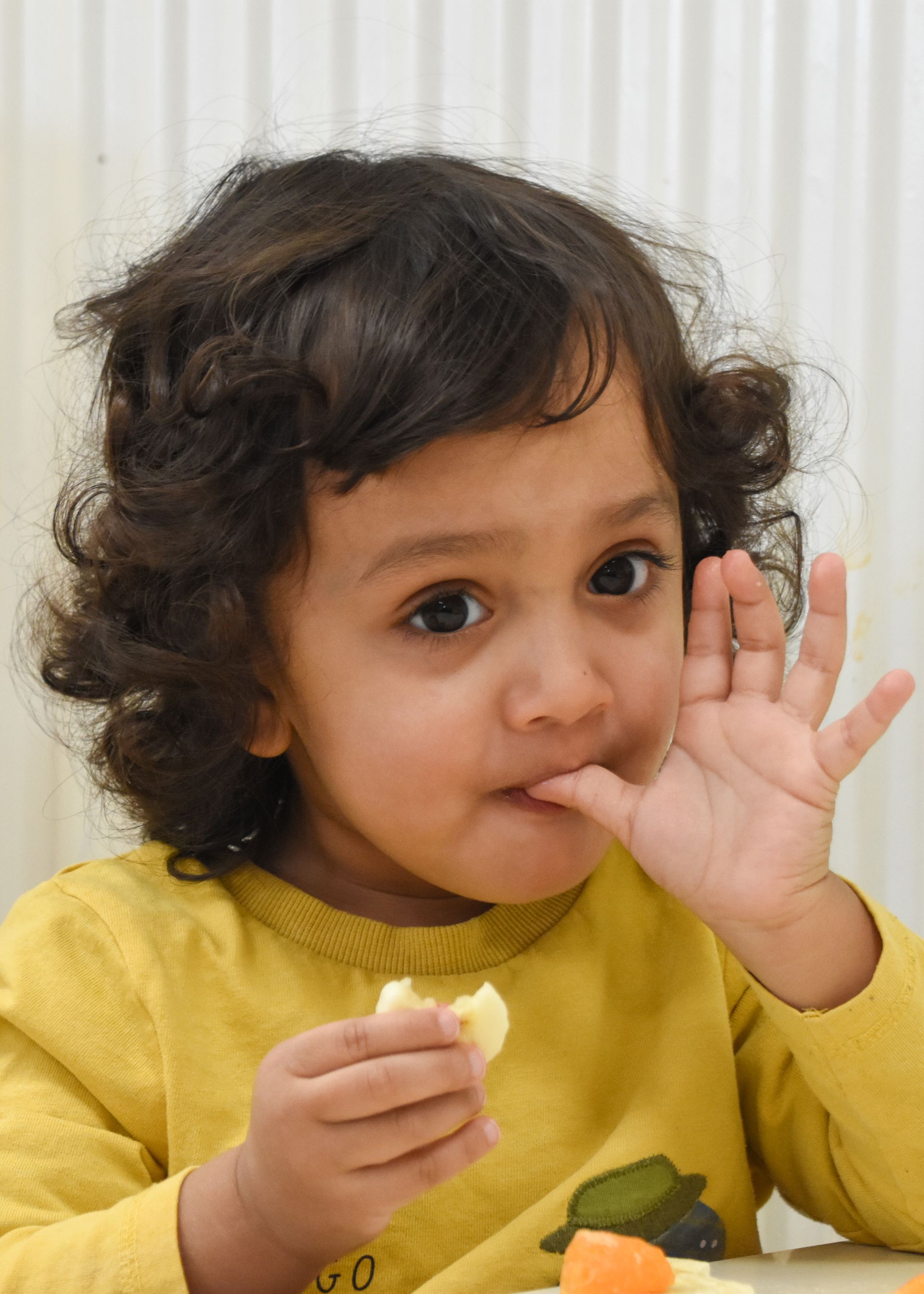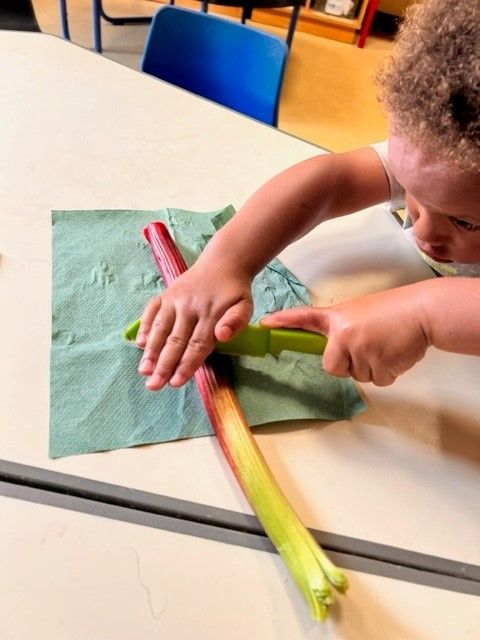Healthy Living

Healthy Eating
How can I promote healthy eating for my child?
- making mealtimes relaxed and comfortable
- sitting and eating with your child
- talking in positive ways about the healthy foods your child is eating
- encouraging children to try new foods
- being a good role model with the foods you eat
- teaching your child about healthy eating through discussions, questions, games and activities
Lunchbox ideas and recipes – Healthier Families - NHS (www.nhs.uk
Meet Our Nursery Chef

Mandy
Nursery Chef
Here at St Andrews we have an amazing Nursery Chef- Mandy. Mandy prepares all of our meals fresh on site.
Our menu provides a healthy and balanced diet.
We are able to cater for all different allergies and preferences.
Our menu rotates each week on a 4 week cycle, this ensures that the children have a wide variety of different meals.
Please take a look at our Nursery Menu below:

When to take my child to the dentist
NHS dental care for children is FREE.
You should take your child to the dentist when their first milk tooth appears. This will ensure your child gets familiar with the environment.
When you visit the dentist, try and make it a fun experience. This will prevent your child from worrying about future trips.
Take your child for regular check ups.
Please see the link below for more advise on oral health:
Children's teeth - NHS (www.nhs.uk)
Tooth Brushing Song by Blippi | 2-Minutes Brush Your Teeth for Kids - YouTube
Early Years Resource Video - (©)Community Dental Services CIC, 2022 - YouTube
How to care for Children's Oral Health: (©)Community Dental Services CIC, 2022 - YouTube
http://www.hillfieldsdental.co.uk
Activities - Community Dental Services
Oral Health
Oral health is really important with both children and adults. Poor oral health can affect the ability to sleep, speech, play and socialise with other children. Other impacts include poor diet, pain, infections and many more. Tooth decay is the most common oral disease affecting children and young people and yet it is largely preventable.
Toothbrushing tips for parents/carers:
Guide your child
Guide your child's hand within the correct movement. This will ensure that they are learning the correct way to brush their teeth.
Use a mirror so that your child can see exactly where the brush is cleaning their teeth.
Use a visual timer
Introduce a visual timer such as a digital timer or an sand timer. This will enable the child to watch how long they need to brush their teeth for.

Physical activity guidelines for children (under 5 years)
Babies (under 1 years old)
Babies should be encouraged to be active throughout the day. Babies take part in physical activity in a variety of different ways such as crawling.
If your baby is not yet crawling then encourage them to be active by reaching for objects, moving their head, body etc.
Try to encourage 30 minutes of tummy time during the day.
Once your baby is able to crawl/move around then encourage them to be as active as possible.
Toddlers (aged 1-2)
Toddlers should be physically active every day for at least 3 hours. This can include jumping, walking, playing etc.
Active play is the best way for this age group to get active. This could include riding a bike, climbing a climbing frame, ball games, swimming etc.
Pre-schoolers (Aged 3-4)
Pre-schoolers should also spend 3 hours taking part in physical activity throughout the day.
Children under 5 should not be inactive for long periods, unless they are asleep. Long car journeys, being in a pushchair for a long period, watching tv for a long period can have a bad impact on a child's health and development.
Weaning
When will I know my child is ready to begin weaning?
When your child is around six months old, they will begin to need more formula/breast milk to meet their needs. This is when you introduce solid foods and drinks alongside formula milk/breast milk (this is not a replacement.)
Please see the attached link with some useful information on weaning.
Getting Ready | Weaning | Start4Life (www.nhs.uk)
Your baby's first solid foods - NHS (www.nhs.uk)
If you need any further support regarding weaning then speak to your health visitor who will be able to offer advice.
Prevention of Accidents
Many accidents are a part of growing up, this is part of children exploring and experimenting within their environment.
However some accidents can be prevented by implementing and being aware of small things.
Please see the link below with some support regarding this:
Child Accident Prevention (safeguardingwarwickshire.co.uk)
Safe from choking | How to prevent choking in children (capt.org.uk)
Come and see our
childrens nursery for yourself
Call or email us to book an
appointment to visit the nursery.
We are located in Shilton,
near Coventry.
St. Andrew's Day
Nursery
Church Road
Shilton
Warwickshire
CV7 9HW
St. Andrew's Day
Nursery
Church Road
Shilton
Warwickshire
CV7 9HW




